Hello! I present you my newest creation, the Lockheed XF-90!
About the plane
The Lockheed XF-90 was a prototype jet fighter designed and built in the late 1940s as part of the U.S. Air Force's effort to develop a long-range penetration fighter. The aircraft was intended to escort bombers on long-range missions and provide high-speed performance and endurance.
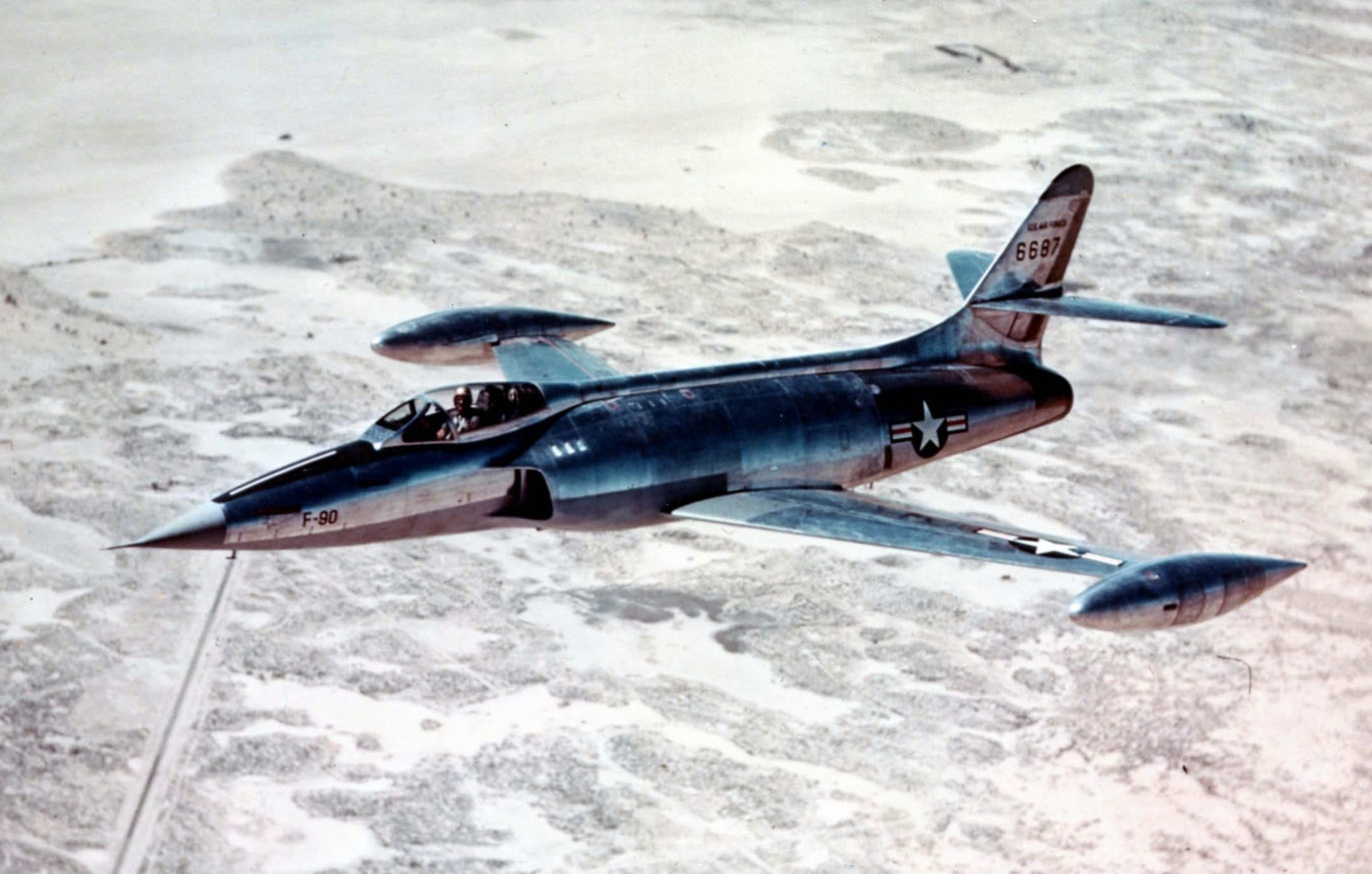
Design and Purpose
The XF-90 was conceived to meet the requirements for a high-performance, long-range jet fighter capable of escorting bombers deep into enemy territory. Lockheed's design featured a sleek, streamlined fuselage and straight wings with a moderate taper. The construction used lightweight materials and advanced aerodynamics. It was powered by two Westinghouse J34 turbojet engines, with provisions for afterburners to increase thrust.
Key design features included:
- Straight, Tapered Wings: Designed for stability and control, though they limited high-speed performance compared to swept-wing designs.
- Tandem Cockpit: A design choice to house advanced avionics and radar systems for navigation and targeting.
- Tricycle Landing Gear: For better ground handling and takeoff performance.
Reasons for Development
The XF-90 was part of the U.S. Air Force's strategic push to enhance its long-range strike capabilities in the early years of the Cold War. The objective was to develop a fighter that could operate effectively over long distances, supporting bomber missions and engaging enemy fighters if necessary.
Why It Went Wrong
Despite its advanced design and ambitious goals, the XF-90 faced several critical challenges that ultimately led to its cancellation:
Underpowered Engines: The Westinghouse J34 engines proved to be insufficient for the aircraft's needs. Even with afterburners, the XF-90 struggled to achieve the desired performance metrics. This lack of power affected both speed and range, undermining its primary mission.

Weight Issues: The aircraft's innovative construction techniques and materials, while forward-thinking, resulted in a heavier airframe than anticipated. This excess weight further hampered its performance and maneuverability.
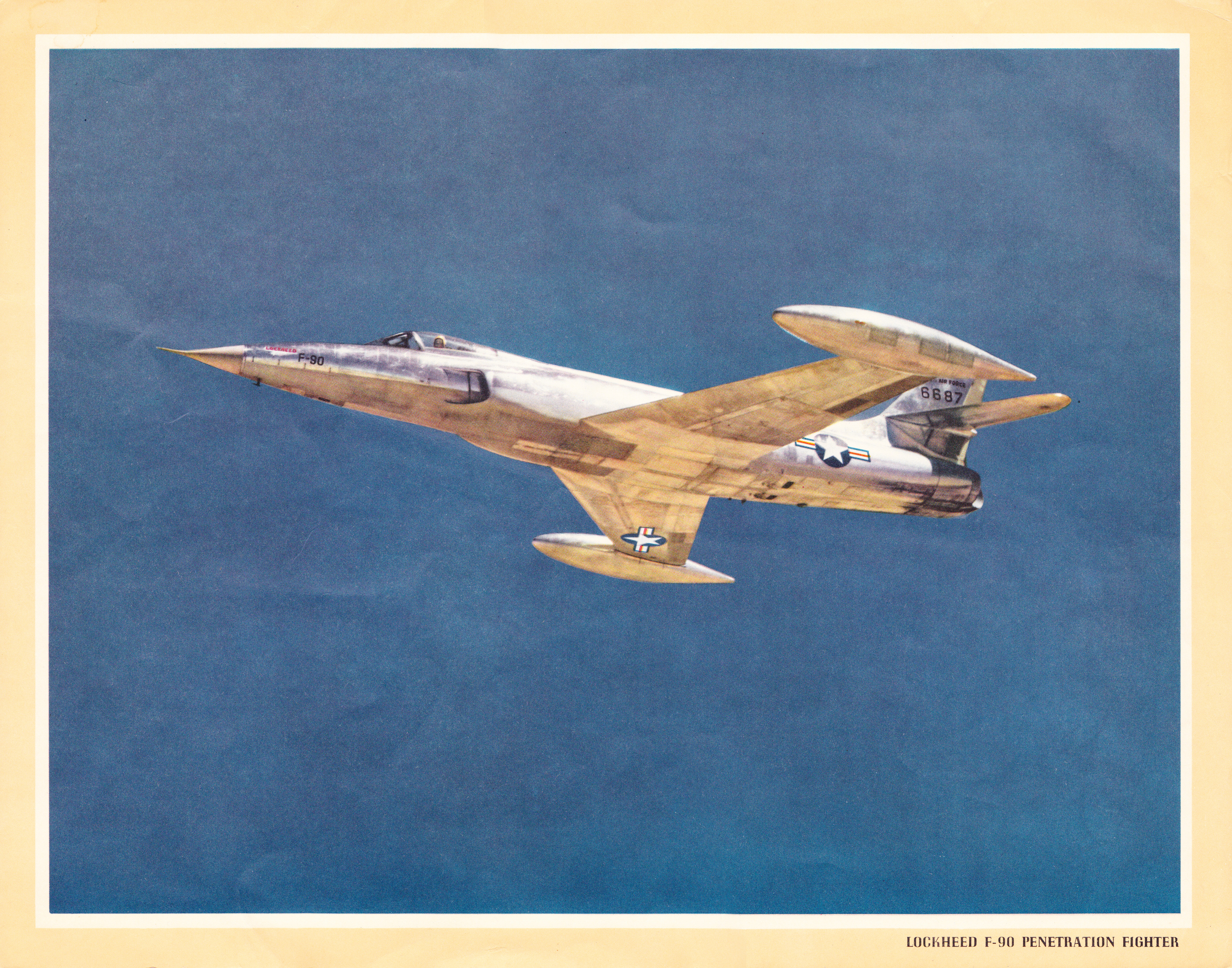
- Competition and Changing Requirements: The XF-90 was developed in parallel with other competing designs, such as the McDonnell XF-88 Voodoo. As the Air Force's requirements evolved, it became clear that other aircraft could better meet the new specifications. The XF-88, for example, offered superior performance and was selected for further development, eventually leading to the successful F-101 Voodoo.

- Technological Limitations: The rapid pace of technological advancements in jet propulsion and aircraft design during the late 1940s and early 1950s meant that the XF-90 quickly became outdated. Newer, more capable designs emerged, making the XF-90 obsolete before it could be fully developed and deployed.

Conclusion
The Lockheed XF-90 was an ambitious project that showcased several innovative design concepts and aimed to fulfill a critical strategic need. However, due to engine performance issues, weight challenges, and rapid technological advancements, the aircraft failed to meet its objectives and was ultimately canceled. Despite its shortcomings, the XF-90 contributed valuable lessons to the field of aerospace engineering and the development of subsequent jet fighters.
Specifications
Spotlights
- MAPA 1.5 years ago
General Characteristics
- Created On Android
- Wingspan 39.5ft (12.0m)
- Length 54.6ft (16.6m)
- Height 14.5ft (4.4m)
- Empty Weight N/A
- Loaded Weight 2,324lbs (1,054kg)
Performance
- Power/Weight Ratio 2.175
- Wing Loading 8.8lbs/ft2 (43.1kg/m2)
- Wing Area 263.4ft2 (24.5m2)
- Drag Points 0
Parts
- Number of Parts 191
- Control Surfaces 6
- Performance Cost 824

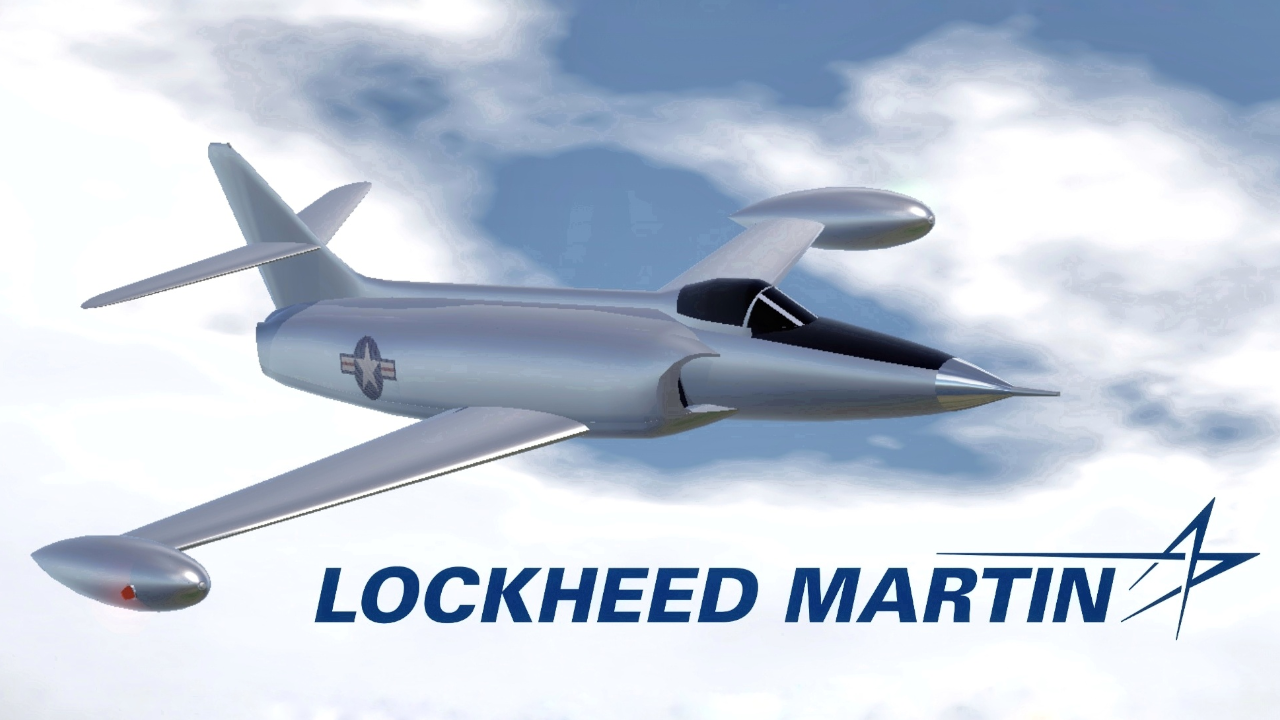
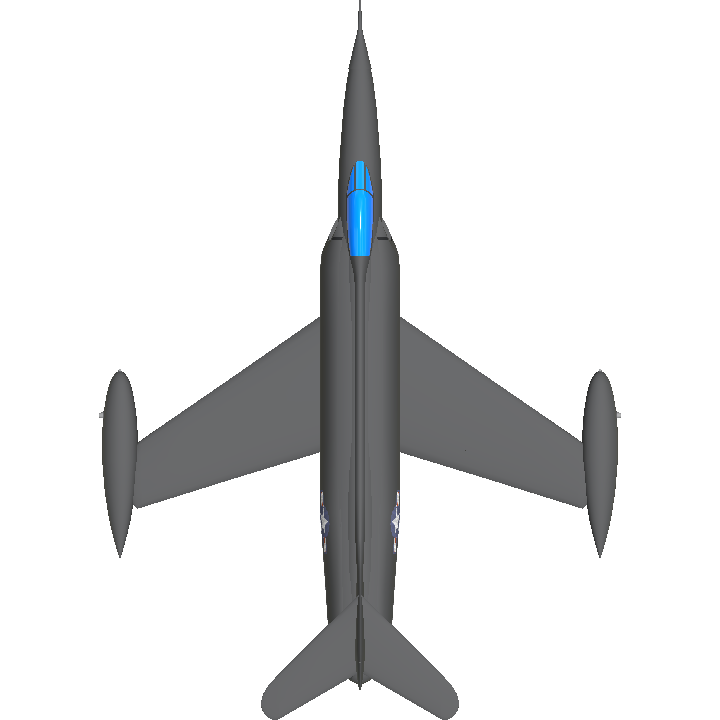
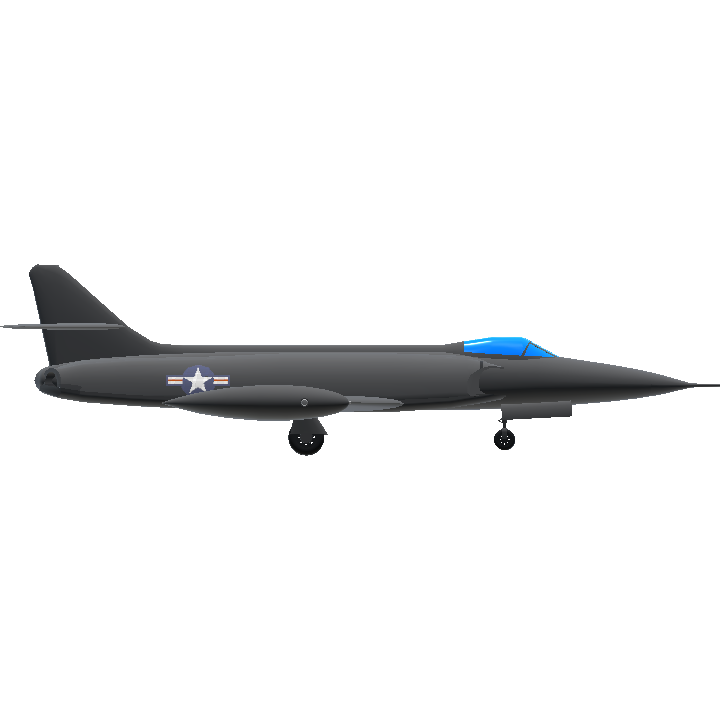
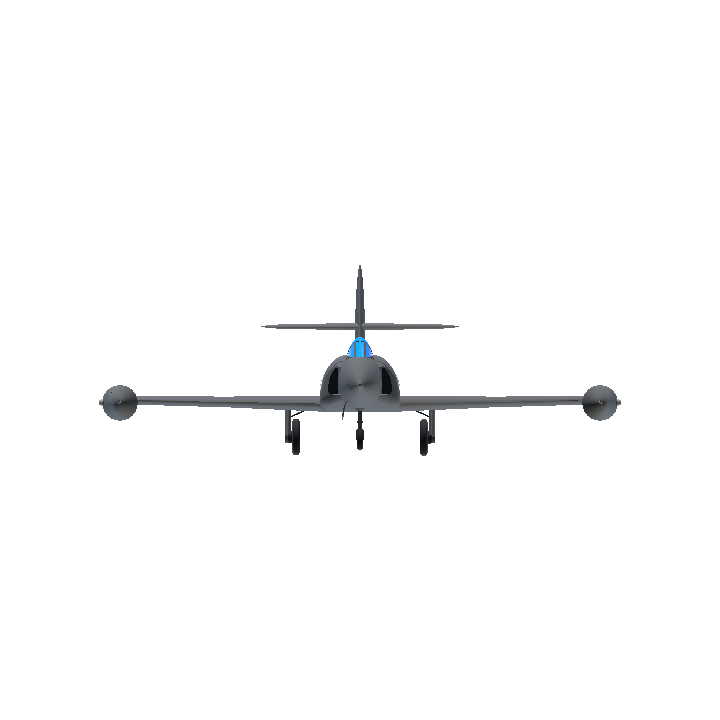
@Apollo018362 fellow Chatgpt user
@WisconsinStatePolice. everything is chat gpt but i put the images
Finally, an XF-90!
Nice and original plane .
XF-90, my beloved. This is beautiful Apollo!
(yo, where'd the description come from? The second half trends towards ChatGPT, but it seems different ?)
I’ve seen the remains of this plane at NMUSAF, pretty interesting plane
Zamn
First
Pin